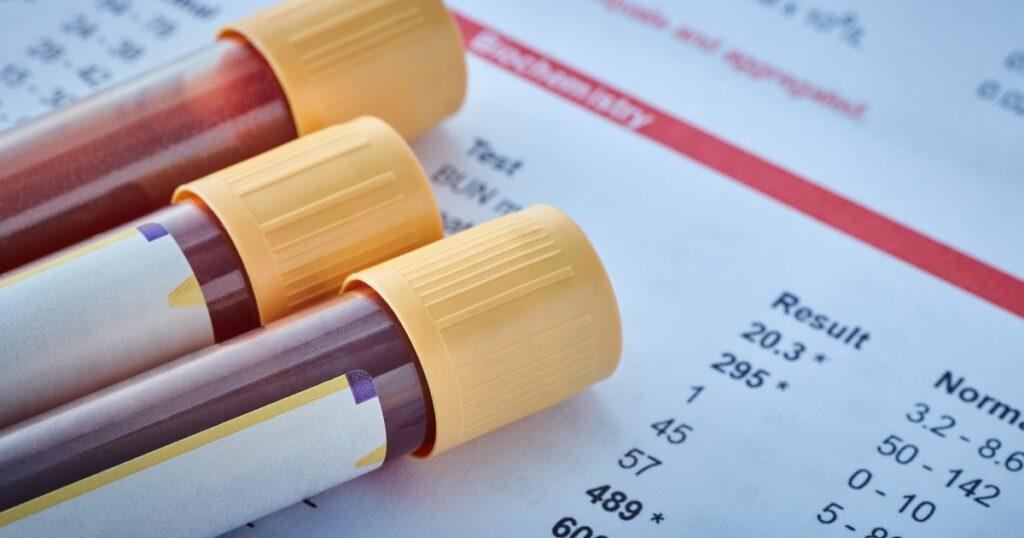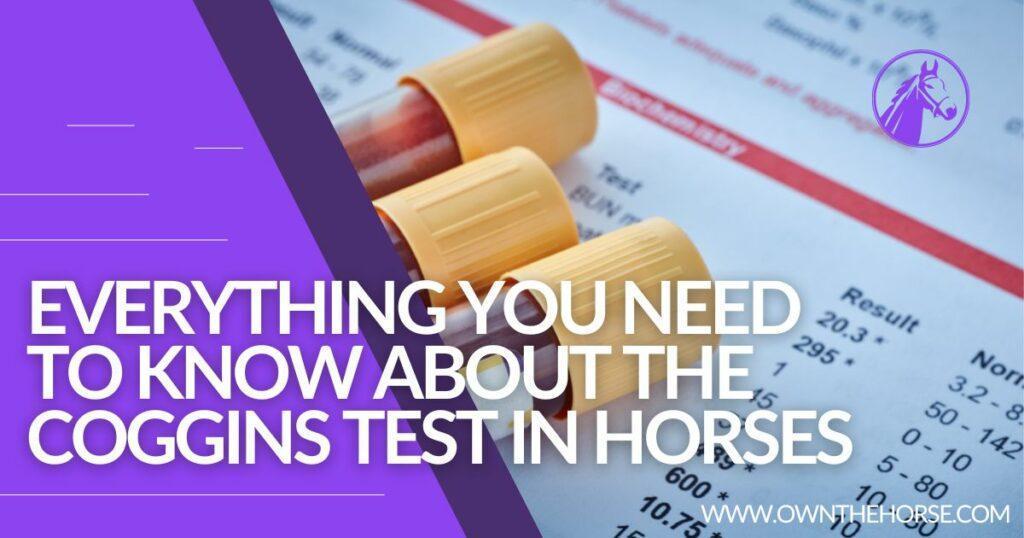As an Amazon Associate we earn from qualifying purchases.
What is the Coggins Test in Horses?
The Coggins Test is an essential blood test for horses, used to detect Equine Infectious Anemia (EIA), a contagious and incurable disease.
The Coggins test is mandated by law in some states, such as Texas, and is required for a horse to travel between state lines, helping to prevent the spread of this awful disease. The Coggins Test detects antibodies in the horse’s blood, indicating if the horse has been infected with EIA.
Unfortunately, there is no cure or vaccine for EIA, making the Coggins Test in horses a crucial step in protecting horses from this insidious illness.
How Is The Coggins Test in Horses Performed?

The Coggins test in horses is performed by a registered veterinarian who will take a blood sample from the horse and send it to an accredited laboratory for analysis. Results of the test typically take up to five days to be returned, and a negative result is required in order for the horse to be considered safe to transport or used in competitions.
How Often is a Coggins Test in Horses Needed?
The Coggins test in horses should be performed annually by a trained veterinarian on your horse.
If you suspect that a horse has contracted Equine Infectious Anemia it should be tested immediately.
Some states in the US require a Coggins test result within 6 months of cross state travel. More Information about State Coggins test regulations can be found at Equine Import and Export Information .
How Much Does a Coggins Test in Horses Cost?
The coggins test is a relatively cheap test to perform and then analyse in a laboratory. The test can range between $20 – $50 this is very dependant on whereabouts it is performed in America.
What Happens If A Horse Has Positive Coggins?
In some areas, you may be able to have your horse quarantined for life, requiring it to be tagged and move no closer than 200 yards to another horse. This option is devastating to any creature that is, by nature, a herd animal.
Euthanasia is sadly the best option for a horse that returns a positive Coggins test result.
What is Equine Infectious Anemia?
Equine Infectious Anemia (EIA) is a viral disease that affects horses. It was first discovered in 1843. EIA is caused by a virus called Equine Herpes Virus 1 (EHV-1).
A popular name for Equine Infectious Anemia is disease is ‘Swamp Fever’. The estimated death percentage rate of horses that contract the disease ranges from anywhere between 30-70%.
Flies and other biting insects are the main cause of the spread of virus that causes the EIA. The insects bite one horse, then they move on to the next.
The virus only lives with the insect for less than an hour, so horse-to-horse transmission mainly occurs with horses in close proximity.
Symptoms of Equine Infectious Anemia
- Fever
- Anemia
- Bloating / Fluid Swelling
- Weight Loss
- Muscle Atrophy (Wasting)
Ultimately, these can lead to organ damage and secondary infections, and eventually, death.
The 3 Stages of Equine Infectious Anemia
- Acute
- Chronic
- Carrier / Asymptomatic
The acute phase of EIA occurs when the horse first becomes infected. In this stage, the virus replicates rapidly and causes fever, depression, loss of appetite, diarrhea, and lymph node enlargement.
Chronic EIA typically leads to severe fever and weight loss and minor bleeding from the mucous membranes. Chronic horses can have acute episodes that frequently come and go in quick succession. An additional symptom of Chronic EIA in horses includes Leg and underside swelling.
After about a year of having the virus most horses will become asymptomatic. You probably won’t see any symptoms but the virus will still be present and the horse will remain contagious.
What Do You Do as a Horse Owner to Prevent EIA?
The best method for preventing the spread of EIA in horses is have a veterinarian perform the Coggins test on your horses annually. Because there is no vaccine for Equine Infectious Anemia the only effective way to prevent it is the removal of infected horses from the remaining population.
You should also be smart about the environment you bring your horses to. Shows, new boarding facilities, and even group trail rides are places where a horse could become infected. Some programs (not all) require a negative Coggins test within six months or one year.
See Also : Horse Blankets – The Complete Guide & The 3 Best Blankets to Buy
See Also : Can Horses Have Down Syndrome? Everything You Need To Know
Amazon and the Amazon logo are trademarks of Amazon.com, Inc, or its affiliates.

Hey there, I’m Jasmine! I’m a total horse fanatic and have been working with these amazing animals for as long as I can remember. I’m passionate about sharing my love for horses with others and helping them learn more about these majestic creatures. As a professional horse trainer and riding instructor, I’ve developed a deep understanding of equine science and am committed to the welfare of horses. That’s why I founded OwnTheHorse.com, a blog where I share my knowledge and insights with fellow horse enthusiasts. I love connecting with my readers and building a friendly community of horse lovers. Whether you’re a seasoned equestrian or just starting out, I’m here to help and inspire you. Above all, I’m a friendly and compassionate person who truly cares about the well-being of horses and their human companions.

